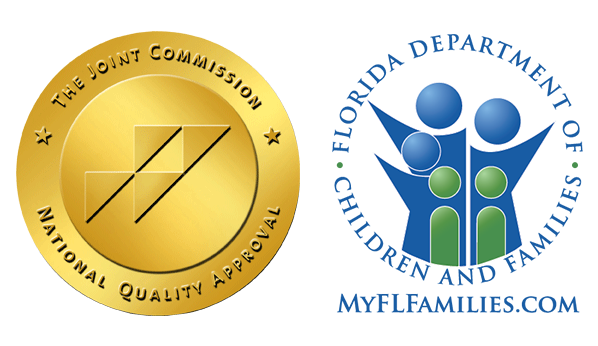14.5 million people in the United States suffer from an alcohol use disorder. It doesn’t help that alcohol is at the center of celebrations and parties, touted as an ‘ice-breaker’ and way to relax. While drinking from time to time isn’t necessarily a problem, once you develop a dependency on alcohol it’s difficult to think clearly.
It can be unsettling to watch a loved one battle alcohol addiction, and you might feel frustrated at times. People often ask, why aren’t they getting help? Why do they keep returning to the very thing that’s pulling them down? Why do they keep lying to themselves?
Why Do Drinkers Lie?
As an outsider, you may not understand why your loved one can’t own up to their addiction. They may keep making excuses for their heavy drinking, and it can be difficult to understand why. However, there are several reasons as to why. They probably feel ashamed and embarrassed about their actions, so lying to themselves (and others) makes them feel better.
If they don’t understand the science behind their addiction, they might go so far as to develop a false reality. Alcohol abuse has a big impact on the way the brain functions, altering the way someone perceives themselves. Drinkers also hate confrontation. If they’re constantly being questioned and bombarded, they might resort to lying to avoid arguments.
So, what are some of the top lies drinkers tell themselves?
1. “I Can Stop Whenever I Want To.”
One of the most common lies drinkers tell themselves is that they can stop whenever they want to. They’re not ‘addicted.’ They don’t have a ‘problem.’ They may tell themselves, and others, that they could stop if they wanted to – but they don’t want to.
Addiction can creep up on you easily, and not all drinkers will actually realize how severe their dependency is. They might never have tried to abstain, so haven’t experienced any of the nasty side effects. They might believe that just because they go to work and have a social life, they’re not addicted. They might believe they’re in control, but really it’s alcohol that’s in control of them.
2. “Alcohol Makes Me Feel Better.”
Alcohol is a depressant, meaning that it makes people feel more relaxed. Neurotransmitters are slowed down, producing a calming and euphoric feeling. It might feel good in the short term, but it’s what happens in the long run that matters most.
A lot of drinkers will tell themselves this lie because they truly believe it. Mental health is often the root cause of alcohol abuse, causing many to self-medicate to make themselves feel better. In the long run, however, sustained alcohol abuse exacerbates existing mental health conditions and changes the way the brain functions. This can lead to stress, anxiety, and depression later down the line.
3. “I’m Not as Bad as X.”
It’s a common lie and you might have heard it before. “I’m not as bad as X.” “I still go to work and have a life – I can’t be addicted!” 19% of all those addicted are classified as ‘high functioning.’ In other words, they can go about their daily lives in a pretty normal way (aside from their drinking habits). They get things done, they do their job properly, they have a normal social life – they just drink a little more than the average person. However, addiction is still an addiction. Just because someone isn’t passed out or going to work doesn’t mean they haven’t got a problem, it just means they’re high functioning.
4. “Alcohol Makes Me Feel More Connected to My Friends.”
Since alcohol relaxes inhibitions, it’s easier to socialize and connect with others. Heavy drinkers might feel like the life of a party when they’ve got a few drinks in their system, but it’s just because they’re feeling more confident. They might be more talkative but that doesn’t mean they’re truly connecting or forging relationships.
One of the many side effects of alcohol is slurred speech. This, alongside delayed response times, actually makes it harder to connect. Sober people are more likely to be repelled by this kind of behavior, but those addicted to alcohol won’t always see it. This lie has more to do with the way alcohol makes them feel than the way it helps them ‘connect’ with others.
Those battling addiction also often find that their relationships start to take a toll as the years go on. They might start to push loved ones away and put their substance use on a pedestal.
5. “I Didn’t Even Drink That Much.”
Downplaying alcohol consumption is a common lie among heavy drinkers. Some might truly believe it and think that addiction is only reserved for the worst-case scenarios. However, the definition of addiction is wide-ranging. Ten glasses of wine a day could be an addiction, and so could five. If they rely on drinking to get by, then they’re addicted. They might even try to convince themselves that they drank less than they actually did, or will downplay their consumption to avoid confrontation.
Give Them the Support They Need
It’s understandable to feel frustrated sometimes. You want your loved one to get better. You want them to see the mistakes they’re making and seek help. Quitting alcohol doesn’t just happen overnight and that’s something you’re going to have to come to terms with. It’s a long journey, but by better understanding what they’re going through and the science behind addiction, you’ll be able to support them the best way you can.
To Conclude
If your loved one is battling alcohol addiction, don’t give up hope. There’s a wide range of detox centers and alcohol rehab clinics out there that are ready to help.
The journey to sobriety starts with seeking help, so try and have a conversation with them about your concerns. Show your support and try to put yourself in their shoes. Avoid confrontation and approach them with love and care.











